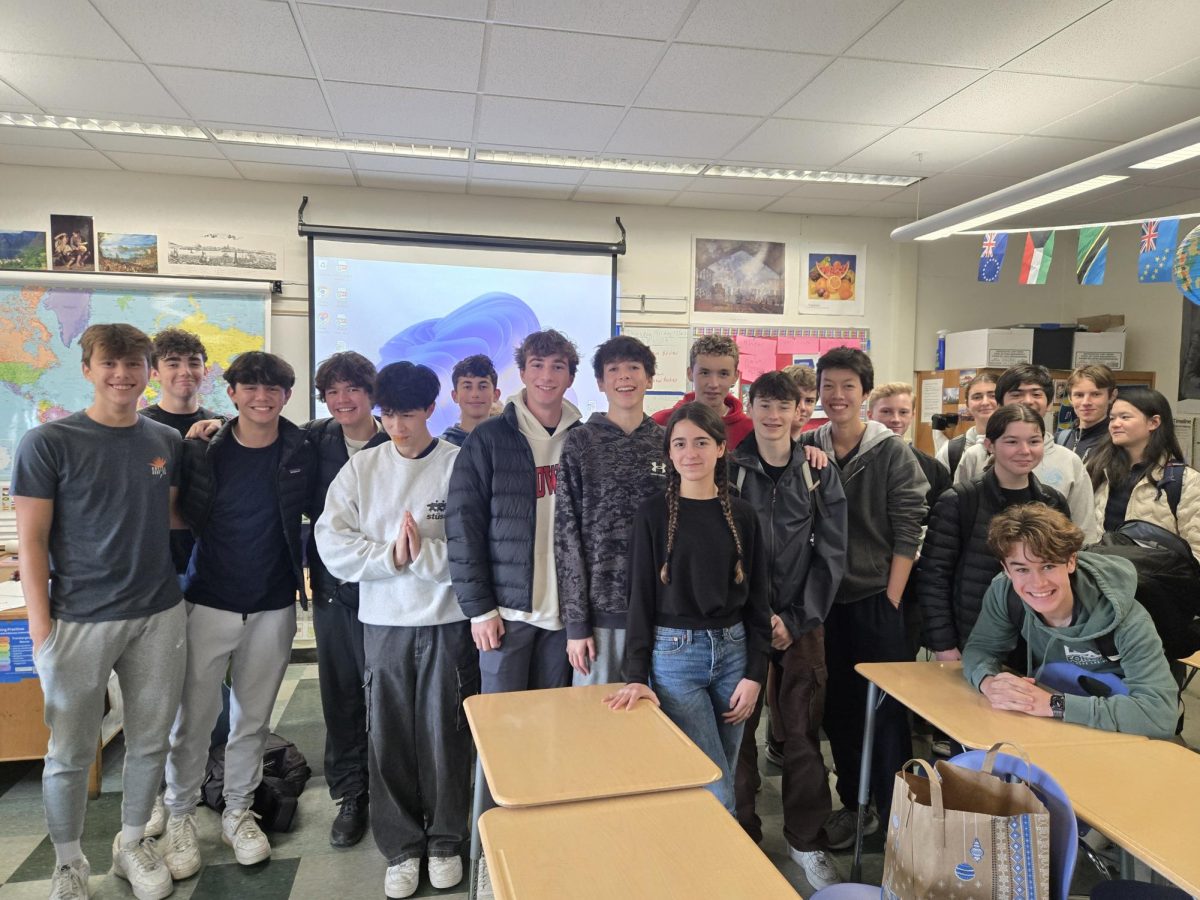Most days, college representatives from all around the nation can be found at Redwood, informing students about their academic institutions. The College and Career Center exposes students to more than just higher education — military recruiters visit the campus as well, speaking to students about a different kind of future.
“[The recruiters] provide information on the different types of jobs that you can do in the different branches of the military,” Paula Vantrease, Redwood’s College and Career Specialist, said. “They talk to you if you have any physical limitations, like if you’re flat-footed or if there are other things that might medically disqualify you.”
While the rules on how military recruiters may interact with students varies from school to school, at Redwood they may only be on campus during times agreed upon by Vantrease, which are most commonly at lunch. That being said, the 2001 No Child Left Behind Act has a policy that allows military recruiters access to student information at the same rate as any other post-graduate institution, unless parents opt their students out.
This year, both the Army and Marines have new recruiters stationed in the area serving Redwood.
Staff Sergeant Gilbert Love is the U.S. Army Reserve Recruiter for Marin County. According to Love, the most frequent issue that he faces as a recruiter is the misconceptions people hold about the military.
“The biggest thing we run up against is that people don’t know about us. You probably didn’t know that you can get your college paid for. What you probably know is something somebody told you, or something you saw on TV,” Love said.
Henry Mesker, a recent Redwood graduate who is now enlisted in the Marines, said that there is definite bias and misinformation surrounding the military in Marin.
“There are a lot of people in Marin that just feel like they’re better than the military, that their son and daughter are better than the military. That’s also a problem for recruiters — people will come up to them and spit in their face,” Mesker said.
Mesker also noted that while he was one of only two Redwood graduates in 2013 to enlist into active duty service, many of the enlistees from around the country he met in basic training had as many as 15 people going into the Marines from each of their respective high schools.
Because family members and friends of potential enlistees may have negative opinions of the military, Love said he likes to meet with both students and the important people in their lives once the military becomes a more serious option.
“We like to get that [influential] person involved, because you’re going to leave us and talk to that person, and then they’re going to put in their opinion,” Love said. “It don’t make no sense for me to talk to you for three hours, and then have you go home and have your parents tell you that I lied to you, so it’s best to get everybody involved.”
Despite the negative beliefs that surround military recruiters, Mesker said he had a great and supportive experience with his recruiter, who he is still in touch.
Henry’s brother Carl, currently a senior at Redwood, has a somewhat different take on military recruiters, having seen his brother go through the process.
“My take on the whole recruiting thing is that they’re all good guys and they’re doing their job, but part of their job is that they’re supposed to press on kids and recruit really hard,” Carl said. “They tend to be kind of pushy, while not quite aggressive, to recruit kids.”
Love said that while some recruiters are more aggressive than others, they cannot force anybody to listen to them, and that at the end of the day, they are just there as a resource for interested parties.
The experience of military recruiters assists with their ability to promote the armed forces as a strong option for the future.
Military recruiters generally serve as regular soldiers in the military before being nominated for, or applying to, become a recruiter.
According to Henry, usually only the most accomplished soldiers become recruiters, so that the public interacts with the best and brightest the military has to offer.
Love was an active duty soldier in the Army for 11 years, serving overseas in Operation Desert Storm before beginning his job as a recruiter five years ago.
Love also said that while there are multiple branches of the military, each is more similar than not, and recruits in much the same fashion as well.
“In my opinion, it’s kind of like Coke and Pepsi. [The various branches] are kind of the same, but they’re different. So you just have to pick what’s best for you,” Love said. “There are little differences. It’s like picking a college. Stanford versus Harvard. They’re both good schools, but you have to decide what’s best for you.”
According to Vantrease, she has had no issues with military recruiters, and said she finds them as professional and respectful as any college representative that has visited campus.






